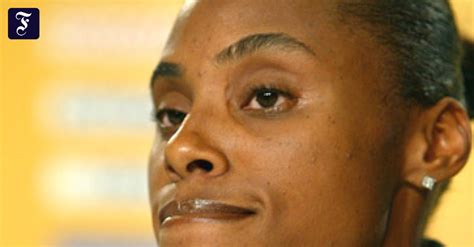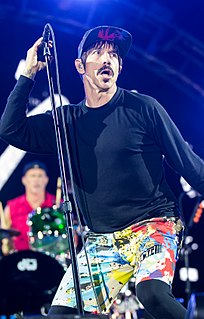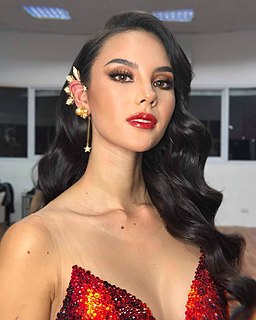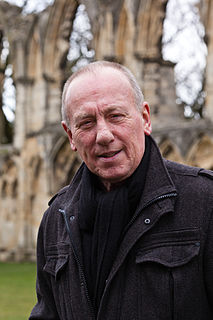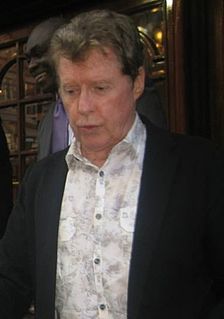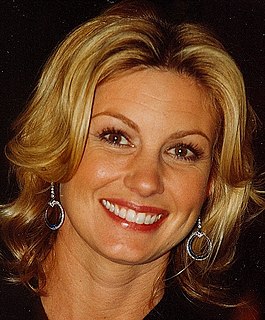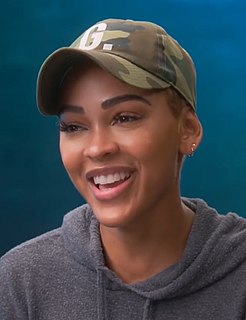A Quote by Kelli White
I felt that to do this drug, I had to become someone totally different than I was. I had to compromise my integrity, my value system. I knew it was so wrong.
Related Quotes
I had to sit with my senses. This clear, beautiful intuition took over. I knew exactly how I felt, and I wasn't confused or clouded or compromised. I realized that none of my feelings had diminished, but I might have to lose someone I truly loved. I didn't want to run away from Claire, but I knew drug addiction was strong enough that I had to be willing, if need be, to let go of the person I'd just fallen in love with.
The opposite of compromise is not integrity. The opposite of compromise is not idealism. The opposite of compromise is fanaticism and death. And yes, I know one or two things about fanaticism and death, and I reject them. The alternative to fanaticism and to death is not some miraculous realization that someone has been wrong and he has to apologize. No, the answer to fanaticism and to death is curiosity and compromise and concession.
At the time I discovered that I had prostate cancer, it was not long after my first wife had died, so my children had lost their mum. I felt that to tell them that I had prostate cancer, while I knew that I had it and there was a threat of some sort, I felt that it would be wise not to make things worse for them.
One of the first speaking roles I had was in a film called 'Svengali', with Peter O'Toole and Elizabeth Ashley. I was a waiter, and I had about three lines. And I was ready! I had been around people like that, and I knew they were just actors. All the work I had done, it was all there, and I felt like I knew all the mechanics.
I'd be totally exhausted by mid-afternoon, and I could barely climb the stairs at home. It was particularly alarming because all my life I'd enjoyed doing all my own stunts in shows, taking on every physical challenge. Yet suddenly, I'd become like a very old man. I knew something was wrong, but I had no idea what.
That was when I learned that words are no good; that words dont ever fit even what they are trying to say at. When he was born I knew that motherhood was invented by someone who had to have a word for it because the ones that had the children didn't care whether there was a word for it or not. I knew that fear was invented by someone that had never had the fear; pride, who never had the pride.
We knew we wanted the 'magic' in our show to be different than the typical wand-wielding spell-casting fare. For us, it had to be natural and physical, with a source and rules and limitations - and most importantly it had to be a skill rather than just a power, something that a practitioner had to learn and strive for.
Looking at the data and at my drug use and evaluating it carefully just let me see that I wasn't special, but my drug use challenged what I thought about cocaine. Because I would accept when I would say, "What happened to that person?" and someone would say, "They started using cocaine...they went downhill..." I would just accept that, even though I had a different experience and all these other people had a different experience. But I would throw that out because I thought my experience was an aberration.
She smiled. She knew she was dying. But it did not matter any longer. She had known something which no human words could ever tell and she knew it now. She had been awaiting it and she felt it, as if it had been, as if she had lived it. Life had been, if only because she had known it could be, and she felt it now as a hymn without sound, deep under the little whole that dripped red drops into the snow, deeper than that from which the red drops came. A moment or an eternity- did it matter? Life, undefeated, existed and could exist. She smiled, her last smile, to so much that had been possible.
I always knew I wanted to be an actress, and I had the attitude that I would learn more under people like Samuel L. Jackson, Laurence Fishburne or Mike Myers than from someone who had never starred in a movie. I just didn't think that someone who had never been in a movie could teach me how to act in one.
